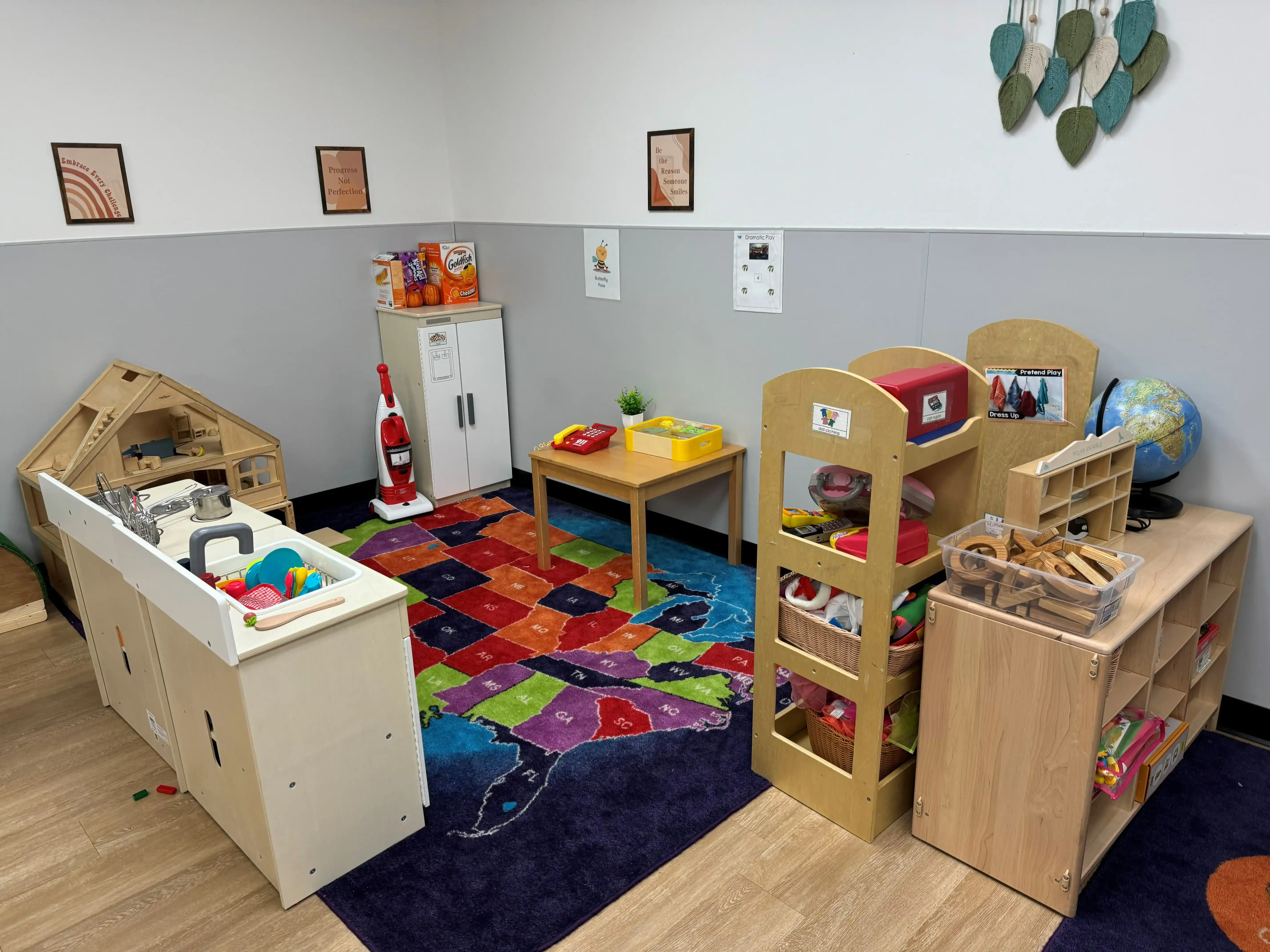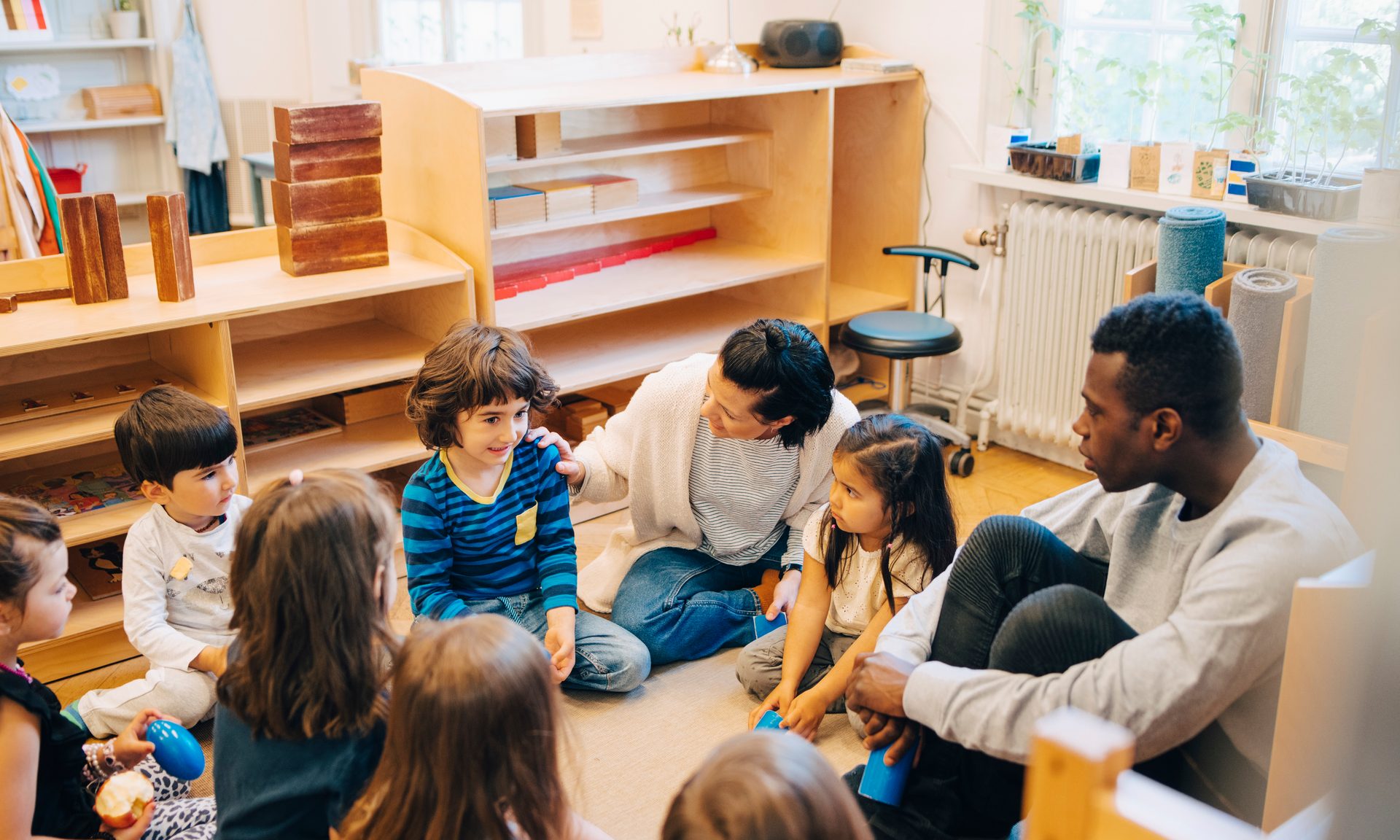Exploring The Benefits Of Enrolling Your Child In Childcare North York
The Role of Childcare in Fostering Social Abilities and Very Early Learning
Day care works as a substantial atmosphere for young children, promoting vital social interactions that advertise early understanding. In this structured setting, children engage with caregivers and peers, developing crucial communication and teamwork abilities. As they navigate play and numerous tasks, they discover to deal with conflicts and build psychological knowledge. Comprehending the nuances of these interactions reveals the profound influence childcare has on a kid's advancement, forming their future partnerships and scholastic preparedness. What specific abilities do youngsters acquire in this setup?
The Value of Social Communication in Daycare
While lots of parents recognize the importance of very early youth education and learning, the function of social interaction in day care is typically underestimated. Day care settings offer kids with invaluable possibilities to involve with peers, promoting crucial social skills. During these developmental years, youngsters discover to navigate different social dynamics, such as sharing, collaboration, and problem resolution. Engaging with diverse age and characters improves their capability to adapt to various settings and establish compassion in the direction of others.

Building Communication Abilities Through Play
Play offers as a powerful medium for children to construct important interaction skills in daycare settings. Through various play activities, youngsters involve in discussions, express their thoughts, and learn to listen to others. Parlor games, as an example, encourage them to use language in different contexts, promoting vocabulary development and understanding of social cues.

Storytelling throughout play allows youngsters to convey emotions and concepts, assisting them create narrative skills and self-confidence in their spoken expressions. Generally, play not just functions as an enjoyable leisure activity but likewise as a necessary system for developing the interaction skills required for successful social interactions in later life.
Encouraging Cooperation and Teamwork
Collaboration and team effort are essential abilities that youngsters can grow in daycare environments. Via numerous team activities, such as building jobs or collective video games, youngsters find out to share responsibilities and work toward typical objectives. These interactions cultivate an understanding of the significance of listening to others, negotiating roles, and jeopardizing when required.
In childcare setups, caretakers often produce chances for youngsters to take part in teamwork by encouraging them to join team jobs. This not only aids children create social bonds yet additionally grows a feeling of belonging and neighborhood.
As they browse these cooperative experiences, children obtain important understandings right into the characteristics of dealing with peers. They discover to appreciate diverse point of views and acknowledge that each member adds distinctly to the group initiative. Eventually, these early lessons together and synergy lay the foundation for much healthier connections and effective cooperation in future social and scholastic setups.
Structured Learning Activities and Cognitive Growth
Structured learning tasks play an essential function in promoting cognitive development in kids (Child Care Near Me). These activities, which include challenges, narration, and hands-on experiments, promote important thinking and problem-solving abilities. In a daycare setup, organized understanding motivates youngsters to engage with their peers, boosting their capability to process information and recognize different concepts
With directed play and interactive jobs, children establish foundational skills such as numeracy and literacy. Activities centered around numbers can assist kids realize mathematical concepts, while storytelling improves language procurement and understanding. Additionally, structured knowing permits educators to assess developmental progression and dressmaker tasks to individual knowing needs.

Integrating a diverse variety of structured activities not only advertises cognitive growth but also prepares children for future scholastic success. By offering a balanced atmosphere that promotes exploration and query, day care programs play an essential duty in shaping the cognitive abilities of young students.
Promoting Psychological Intelligence and Confidence
Psychological knowledge and confidence are necessary parts of a youngster's growth, matching the cognitive skills promoted with structured discovering activities. In daycare setups, children are offered with opportunities to share their feelings and engage in social interactions, which are important for developing emotional recognition. With led play and team activities, kids find out to determine their sensations, acknowledge those of others, and create empathy.
Additionally, communication with peers and caregivers helps to grow self-esteem and strength. Favorable support and inspiration from grownups encourage children to take threats and face challenges, fostering a sense of success. As they navigate social dynamics, kids construct self-confidence in their abilities to interact, collaborate, and settle disputes - Child Care Near Me. This caring environment enables for the gradual advancement click here of psychological knowledge, which is vital for future interpersonal relationships and overall well-being. As an outcome, day care plays a substantial duty in fostering both emotional knowledge and confidence in young kids
Regularly Asked Inquiries
Just How Can Parents Select the Right Childcare for Their Youngster?
Moms and dads need to take into consideration factors such as location, staff credentials, safety and security requirements, educational program, and assesses from various other moms and dads when picking the appropriate childcare for their child, ensuring it straightens with their kid's developmental needs and household values.
What Age Is Ideal for Beginning Daycare?

Exactly How Does Childcare Effect Kid's Habits at Home?
Day care typically favorably influences youngsters's behavior in the house by improving social skills, advertising freedom, and motivating emotional policy (Childcare North York). Because of this, children might exhibit enhanced communication and teamwork, resulting in more harmonious family dynamics
Exist Any Kind Of Downsides to Childcare Attendance?
Yes, there are drawbacks to day care participation, including possible splitting up anxiety, exposure to diseases, and inconsistent caregiving. These variables can affect a youngster's psychological health and adjustment at home, influencing general family dynamics.
How Can Parents Assistance Social Abilities Discovered at Daycare?
Parents can support social skills discovered at daycare by promoting playdates, encouraging cooperative tasks, modeling favorable communications, discussing feelings, and reinforcing sharing and communication in the house, therefore boosting their youngster's social growth and self-confidence.
Day care serves as a substantial atmosphere for young children, helping with crucial social interactions that promote very early discovering. Childcare settings supply children with very useful chances to engage with peers, fostering important social abilities. Play serves as a powerful tool for children to build crucial interaction skills in childcare setups. In daycare setups, children are given with chances to express their emotions and involve in social communications, which are essential for developing psychological recognition. Day care frequently favorably affects youngsters's behavior at home by boosting social skills, promoting freedom, and encouraging emotional law.